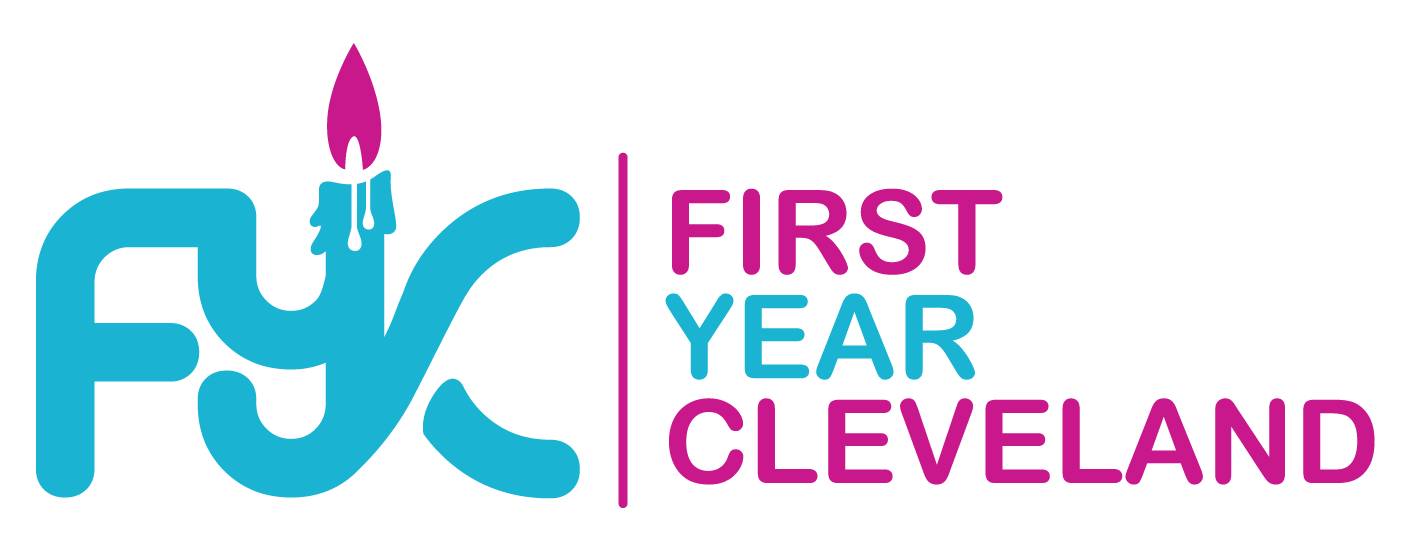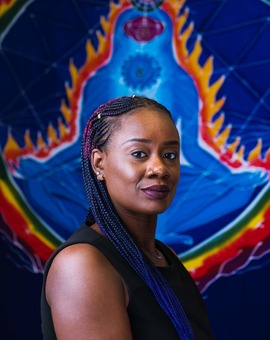Christin F. gets daily affirmations that her work with Birthing Beautiful Communities (BBC) is changing lives in Cleveland. The 32-year-old founded the organization in 2014, bringing together a collective of black doulas to combat the city’s dire infant mortality rates among black babies.
Over the past few years, the organization has grown from serving a handful of women to more than 500 in Cuyahoga County. The BBC model improves health outcomes for both mother and baby by providing women with doulas to assist them throughout their pregnancy and their child’s first year of life.
Her focus with First Year Cleveland is understanding the role race and maternal stress play in infant deaths. If you ask Christin about the organization’s five-year plan, there are intentions to expand far past Northeast Ohio. But, for now, the impact is just what the region needs.
I’ve known that I wanted to be a midwife since I was 16. I carry that passion into the work I’m currently doing: making sure women have access to woman-centered care. If that care can’t be delivered by an institution such as a hospital, then there should be a village around the mom to support her as she successfully carries out her pregnancy and labors through the birth of her child. That village should also stay on deck that first year of her child’s life when she so desperately needs it.
When I had my first child (as a student at Kent State University), I was well-supported by my family — both my family at home in Cleveland and my friends at college. We all lived off-campus together, so we were a little family of our own. Now, I certainly had my moments, especially within the first three months, where I struggled during that adjustment to life with a new baby. Nobody talks about that with you. You’re prepared during the pregnancy because you get all this information at your prenatal visits, but after the baby gets here, nobody tells you, “Hey, it’ll be difficult to take a shower or find time to eat.”
I’ve always felt that, as a society, we have not been supportive of reproduction. I just find it to be so odd that systems and policies are not set up to receive families. Even though I didn’t realize my dream of becoming a midwife, I pursued work as a doula, which led me to found Birthing Beautiful Communities.
Birthing Beautiful Communities is designed to take in moms who are at least 16 weeks pregnant — the sooner, the better. First, we assign each mom a perinatal support professional. They do so much more than just attend prenatal visits or the labor and delivery. They are literally embedded into the daily lives of these women, for at least 80 weeks. Their scope is far beyond what people imagine when they think of a doula. We have weekly classes, Sisters Offering Support, for our moms, which are designed to help the women identify what they’re experiencing — stress, depression, anxiety, panic and fear — and give them tools to navigate these experiences or remove them altogether.
The majority of women who experience these things don’t know what to call them. They may say “Oh, I was tripping” or “I’m just mad.” Part of the problem is if they can’t articulate what they’re feeling, then it’s hard to address it. Addressing anxiety is different than addressing fear. It’s important that they identify those feelings, so they can get the proper solution. The best part of this work is seeing women becoming more empowered than when they started off. We see women from all walks of life, all different socioeconomic backgrounds. But the consensus has been that they need this continuous support in their lives. It does increase your self-esteem and your confidence when you know you have someone you can reach out to, who can get you back on track.
I love seeing women come out of a place of hopelessness to a place of optimism, because they have also met other women who are only here to help them and not judge them. Walking into this space for them is a relief. They come here and think, “I can be who I am.”
“This is literally my life’s work. This is what I was born to do. I understand that, I respect that — and I love it.”
When I hear stories from the families, or when we get a call from another state talking about replication, all these little things remind me how necessary our work is. For example, two weeks ago, we got a call from one of the hospitals. They were referring a patient to us. The social worker called 28 agencies before she called ours. Things like this remind me why we exist. This need is why we’re building our own campus with 20 units of short-term housing: the systems are overburdened with people. We haven’t figured out how to build pipelines.
We know that black infant mortality is not a poverty problem — women of all socioeconomic levels and backgrounds are at the same risk. There are two main things that black infant mortality boils down to — racism and patriarchy. Those are the drivers of it. There is not woman-centered care in this country, and women historically have not made the policies that impact families.
Part of the reason we see these higher rates in black communities is a lack of representation in these medical spaces. Our history has prevented us from having opportunities and resources, so now there’s a lack of black doctors and midwives. Across Cuyahoga County, we only have three black midwives who are licensed to catch babies. That’s inequity. Now, black women are saying, “The doctors aren’t listening to us.” They don’t feel comfortable with their providers, but they don’t have many options. That’s because most of the providers are white males. You’ve got to even the playing field, and then we can talk about what’s going on with our policies.
See, there’s a difference between programs and pipelines. Programs are supposed to be short-term. Programs aren’t meant to last 30 years. That’s what we’ve gotten wrong. Pipelines are used to sustain people. You’re supposed to equip people with the tools they need to survive so they have the tools to support their family. If racism and patriarchy aren’t addressed in our programming, then we’re not moving toward a place of equity. Everything else we do is null and void. It’s only going to change what we see today, but not what we see in the future.

